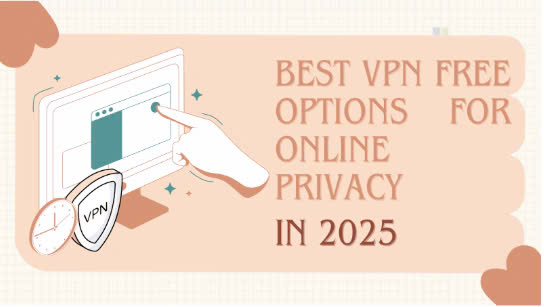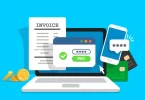Contents
- 1 1. Introduction: Why Online Privacy is Crucial in 2025
- 2 2. What is a VPN Free Service?
- 3 3. How Do Free VPNs Protect Your Privacy?
- 4 4. How to Choose the Best VPN Free Service for Your Privacy Needs
- 5 5. Top 5 VPN Free Options for Enhanced Privacy in 2025
- 6 6. The Pros and Cons of Using VPN Free Options for Privacy
- 7 Pros:
- 8 Cons:
- 9 7. Are Free VPNs Safe to Use for Your Privacy in 2025?
- 10 8. Alternatives to Free VPNs: When Should You Upgrade?
- 11 9. Conclusion: Is a Free VPN Enough for Protecting Your Privacy in 2025?
1. Introduction: Why Online Privacy is Crucial in 2025
In 2025, protecting your personal data online is more important than ever. Whether you’re shopping, browsing social media, or simply checking emails, your data is constantly at risk from hackers, advertisers, and even your own internet service provider.
A VPN acts like a shield, keeping your online activity private by hiding your data from prying eyes. And the best part? You don’t need to pay for a VPN to stay secure. In this guide, we’ll explore how free VPNs work, why they’re so important for privacy in 2025, and which ones are the best at keeping your data safe.
2. What is a VPN Free Service?
A free version of a VPN is exactly what it sounds like—a VPN free that helps you secure your internet connection, protecting your privacy while you browse, stream, or download. These free VPNs provide the core benefits of encryption and anonymity without the price tag. While free services typically come with some limitations compared to paid versions, they can still be incredibly useful for everyday users who want to protect their online activity.
For example, free VPNs usually come with limited server options or reduced speeds. However, they still provide key features like hiding your IP address, encrypting your data, and preventing trackers from monitoring your online habits.
3. How Do Free VPNs Protect Your Privacy?
Free VPNs protect your privacy by encrypting your internet connection, essentially turning your online activity into unreadable data that can’t be intercepted or accessed by third parties. Here’s a breakdown of how they keep you secure:
- Free VPN Encryption: When you use a free VPN, your data is encrypted using strong protocols like AES-256, which is the same military-grade encryption used by banks and government agencies. This ensures that your sensitive information stays private, even when you’re on unsecured networks like public Wi-Fi.
- Anonymous Browsing: Free VPNs hide your real IP address, which makes it much harder for websites and advertisers to track your activity across the internet. This is especially useful if you want to browse without leaving a trail of personal data behind.
- Secure Connections: Many free VPN services use protocols like OpenVPN or IKEv2, which establish a secure connection between your device and the VPN server. This connection prevents your data from being exposed to hackers or other malicious actors.
4. How to Choose the Best VPN Free Service for Your Privacy Needs
When choosing a free VPN, there are several factors to consider to ensure you get the best protection for your privacy:
- Data Protection: A good VPN uses strong encryption to secure your data. Make sure the service uses AES-256 encryption and a no-logs policy, which means they don’t store your browsing history or track your activity.
- Server Locations: The number and variety of servers available is important for accessing content from different regions. While free VPNs tend to have fewer server options than paid ones, services like X-VPN offer a good range of options even on their free version.
- Speed and Performance: Free VPNs can sometimes have slower speeds due to limited server access or reduced bandwidth. If you need fast browsing or streaming, look for a free VPN that offers decent speed, like X-VPN, which is known for its reliable performance.
- Ease of Use: Choose a free VPN that is easy to set up and doesn’t require technical know-how. X-VPN is particularly user-friendly, allowing you to connect automatically to the fastest available server without any complicated setup.
- Privacy Features: Look for additional features such as ad-blocking, DNS leak protection, and an automatic kill switch that disconnects you from the internet if the VPN connection drops. These features help ensure your privacy is never compromised.
5. Top 5 VPN Free Options for Enhanced Privacy in 2025
Here are some of the best free VPNs for online privacy in 2025, each offering a range of features to help protect your personal data.
1. ProtonVPN
ProtonVPN is known for its strong security and privacy features, offering unlimited bandwidth even on the free plan. While free users only have access to servers in a limited number of countries, the service is still one of the most reliable for protecting your data with its AES-256 encryption and no-logs policy.
2. X-VPN
X-VPN is a standout option, offering military-grade AES-256 encryption, a no-logs policy, and unlimited data. You don’t even have to register to use the free version, making it simple and quick to get started. One limitation is that it automatically connects you to the fastest server, but this ensures you don’t have to fiddle with settings. Whether you’re browsing or streaming, X-VPN keeps your data safe without any hassles.
3. Windscribe
Windscribe offers a generous 10GB of data per month on the free plan, making it great for occasional streaming and browsing. It also includes features like ad-blocking and tracker protection, along with AES-256 encryption to keep your data secure. However, free users are limited to a smaller number of server locations.
4. TunnelBear
TunnelBear is a popular, user-friendly VPN with a free plan that includes 500MB of data per month. Though it has a data limit, TunnelBear offers AES-256 encryption, a no-logs policy, and excellent user support. It’s a solid choice if you only need a VPN for light browsing.
5. Hotspot Shield
Hotspot Shield offers 500MB of data per day on the free plan, which is enough for casual browsing. The free version uses strong encryption, but the catch is that you’ll see ads and have access to fewer server locations. It’s good for users who need basic protection without too much concern for speed or server variety.
6. The Pros and Cons of Using VPN Free Options for Privacy
As with anything, there are both pros and cons to using a free VPN for your privacy.
Pros:
- Free of Charge: The obvious advantage is that it’s free! You don’t have to pay for privacy and security.
- Improved Privacy: Even free VPNs offer strong encryption and hide your IP address, helping you browse securely.
- No Registration: With X-VPN, you don’t even need to register to use its free version—just connect and go.
Cons:
- Limited Features: Free VPNs often come with limitations such as fewer server locations, slower speeds, or data caps.
- Security Risks: Not all free VPNs offer the same level of protection. Some might log your data or compromise your privacy.
- Slower Speeds: Because free VPNs often have fewer servers or bandwidth restrictions, speeds may be slower compared to premium services.
7. Are Free VPNs Safe to Use for Your Privacy in 2025?
In 2025, many free VPNs still provide good privacy protection, but they aren’t all created equally. Some free VPNs are secure and trustworthy, while others may compromise your data by selling it to third parties.
To stay safe, choose a VPN with a proven track record of protecting user privacy. Look for services like X-VPN, which provide strong encryption, a no-logs policy, and a commitment to your security.
Always do your research to ensure the free VPN you choose doesn’t secretly collect or sell your data.
8. Alternatives to Free VPNs: When Should You Upgrade?
While free VPNs are a great option for casual users, there are times when upgrading to a paid VPN might be the better choice. Paid VPNs typically offer:
- Faster speeds
- Unlimited bandwidth and data
- More server locations
- Priority customer support
If you need a VPN for high-bandwidth activities like HD streaming or gaming, or if you want more advanced security features, a paid VPN might be worth the investment.
9. Conclusion: Is a Free VPN Enough for Protecting Your Privacy in 2025?
A free VPN can definitely be enough to protect your privacy if you choose the right one. X-VPN is a top contender with its AES-256 encryption, no-logs policy, unlimited data, and easy setup. For light browsing, streaming, or occasional use, a free VPN can offer all the protection you need.
If your privacy needs grow, or if you need faster speeds and additional features, upgrading to a paid VPN might be the next step. But for many users, a good free VPN like X-VPN can be a perfect choice for staying safe online without spending a cent.







